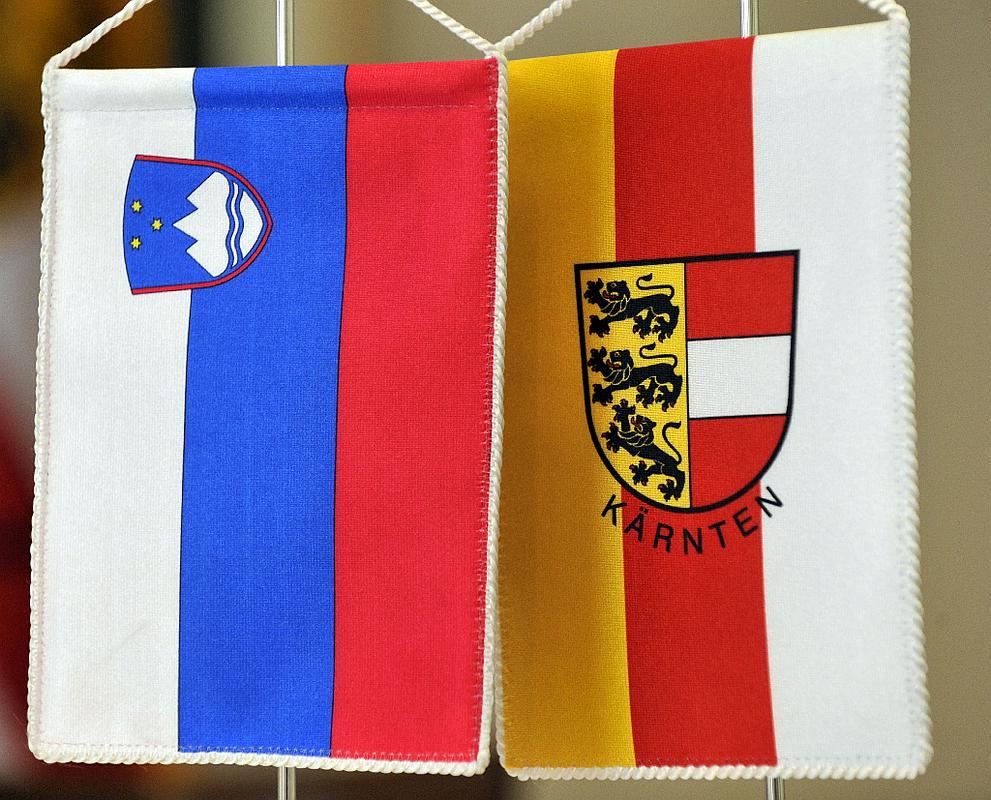
Political parties in the Carinthian state assembly have started reforming the state’s constitution. The draft initially envisaged "the equal protection of the Slovene and German speaking" Carinthians, which pleased the Slovene national minority. The Austrian People’s Party ÖVP then demanded the withdrawal of the mention of Slovenes, citing discontent among the population. The move sparked a crisis within the state coalition, with some even mentioning the possibility of snap elections. A compromise, which pleased all parties, was reached in the end. The Slovene minority is mentioned indirectly, by reference to the state constitution. However, it seems the Carinthian Slovenes are not at all pleased with the outcome.
The only official language is German
Even more, the president of the National Council of Carinthian Slovenes (NSKS), Valentin Inzko, angrily asserted that they have never experienced such humiliation. The coalition proposed a draft constitution in which it says that the state language is German, with no mention of the Slovene language whatsoever. "The first state language in this area was the old Slovene, in Carantania. Until the year 1414 the installation of dukes was carried out in the old Slovene language. Slovenian was also an official language in the Austro-Hungarian Empire. Until the year 1918 is was an official language and the second language of the state. Now it will be German. That’s totally unacceptable," Inzko told MMC. "On an emotional level it’s a catastrophe, it hurts your heart, it’s a very, very bad thing. It’s a big humiliation and we have never experienced anything like it," protested Valentin Inzko.
Inzko expects further legal complications. Politicians would be able to say that German language is in the constitution while the Slovene language is not. Until now there was no explicit mention of languages in the constitution, as the issue is regulated by Article 7 of the Austrian State Treaty which imposes bilingualism in mixed municipalities, although met with great resistance from a part of Carinthia’s politicians. That part will welcome the no mention of Slovene with open hands, Inzko is convinced. Therefore, the NSKS demands either the removal of German from the phrasing, or the addition of Slovene as the second state language in mixed municipalities.
Municipalities also erased in the formulation
The no mention of municipalities is also a problem. The new draft constitution no longer mentions municipalities. "In the previous draft the German-speaking and Slovene-speaking population enjoyed equal protection in the municipalities. Now the municipalities are no longer mentioned. I can’t claim that this will bring immediate problems. But we have to be cautious: at some point somebody might say that German is the state language and that there are no obligations at the municipality level," explained Inzko.
The new draft is a compromise reached among the parties in the assembly, and the Carinthian Slovenes have been left hanging. Inzko added that the parties in the state assembly no longer advocate the interests of Slovenes.
A student protest in front of the state government
The only thing the Slovenes can count on now is civil society pressure on the government. "We reject the changes and demand that either German is removed or Slovene included in bilingual areas." Today, changes in the draft were also demanded in a protest by students in front of the state government building. 30 professors signed a petition in support of the protest, while a number of artists have also started voicing their positions, said Inzko.
Inzko was especially happy to hear that Slovenian President Borut Pahor has also voiced his support for the Carinthian Slovenes. In a new interview for Politico, Pahor stated that Slovenia has to be ready to do everything in its power to protect the rights of the Slovene minority.
"I heard that some in Slovenia thought about sending their congratulations to Austria for the reached compromise. Thank goodness it didn’t happen, Pahor was thinking long-term," concluded the head of the National Council of Carinthian Slovenes (NSKS).
Aljoša Masten; translated by K. J.

































































